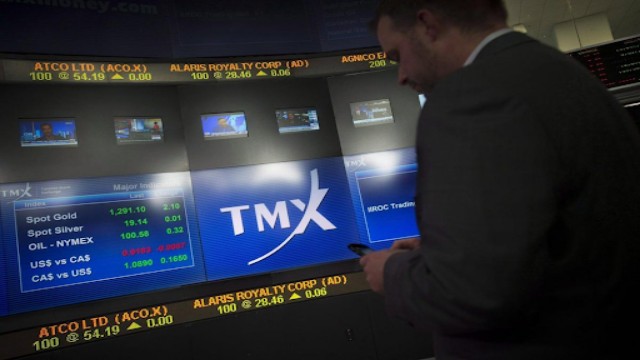
Inflation drops to 2.7% in June due to slower gas price growth. (Photo credit: BNN Bloomberg)
Economists are optimistic following a surprising decline in Canada’s national inflation rate, suggesting that the Bank of Canada might consider another interest rate cut later this month. According to Statistics Canada, the annual inflation rate fell to 2.7% in June, down from 2.9% in May.
This decrease is primarily attributed to a slowdown in gasoline price increases. While gasoline prices did rise by 0.4% in June, this was a significant drop from the 5.6% jump seen in May. When excluding gasoline from the calculations, the consumer price index actually rose by 2.8% in June.
Another contributing factor to the reduced inflation rate was the drop in prices for durable goods, which fell by 1.8% year-over-year in June, following a smaller decline of 0.8% in May. CIBC senior economist Katherine Judge noted that the latest inflation figures provide the Bank of Canada with the necessary information to potentially lower interest rates in their upcoming meeting.
Judge pointed out that core inflation, which excludes food and energy prices due to their volatility, increased by only 0.2% on a seasonally adjusted basis. This is a slight decline from the previous month’s increase of 0.3%. She remarked that the earlier month’s unexpected inflation spike appears to be an anomaly in an ongoing trend of decreasing inflation, as the demand within the economy remains under pressure.
While grocery prices saw a rise of 2.1% year-over-year in June—up from 1.5% in May—this growth remains moderate compared to historical trends. Benjamin Reitzes from BMO highlighted that the increase in food prices is something to monitor closely, as they significantly influence public perceptions of inflation. Everyday items, like groceries, shape how consumers view economic conditions.
Some specific increases in grocery prices included a 3.8% rise in fresh vegetables and a 2% increase in dairy products. Notably, preserved fruit prices jumped by 9.5%, while non-alcoholic beverage prices rose by 5.6%. However, the price of fresh fruit fell by 5.2% in June, which helped keep overall grocery costs in check.
This latest inflation report is particularly important as it precedes the Bank of Canada's next interest rate decision, scheduled for July 24. Earlier this month, the central bank had already reduced its benchmark interest rate by 0.25 percentage points to 4.75%.
The report also indicates that Canadian consumers are becoming more cautious with their spending, especially in areas like recreation and clothing. Spending on shelter has also softened, with rent prices showing only a 0.1% increase—the lowest in nearly two years. This moderation in shelter costs has contributed to the overall inflation slowdown.
Looking ahead, Reitzes believes that achieving the Bank of Canada’s target inflation rate of 2% will be a gradual process, likely taking until mid to late 2025. He noted that while the trend toward this target is encouraging, many unpredictable factors could influence future inflation, such as energy and food prices, as well as political uncertainty.















